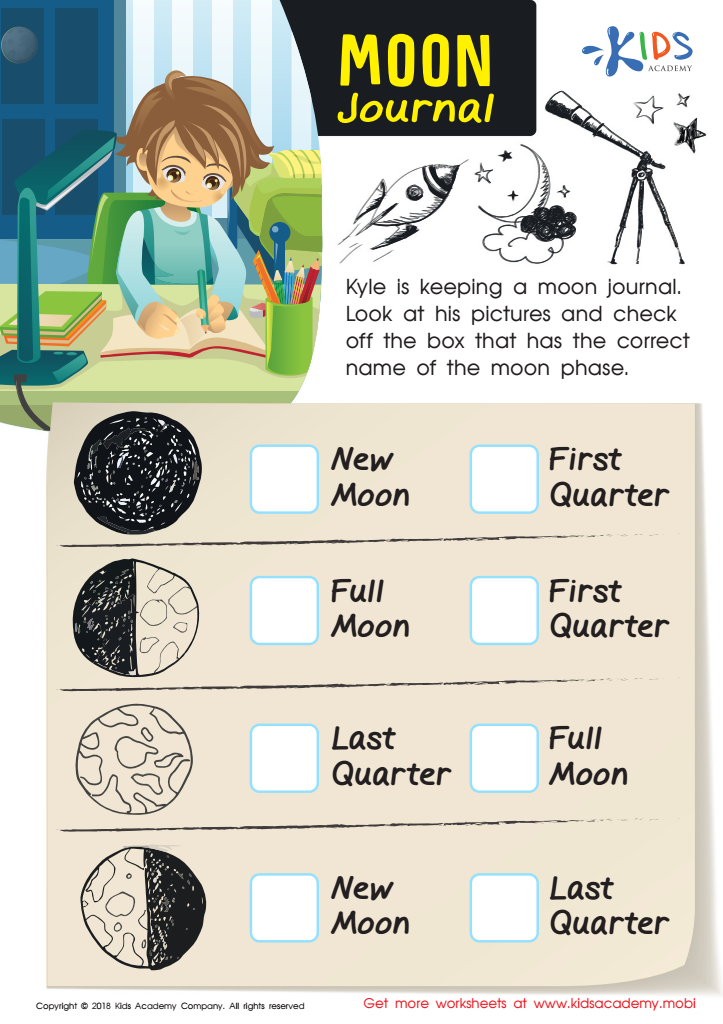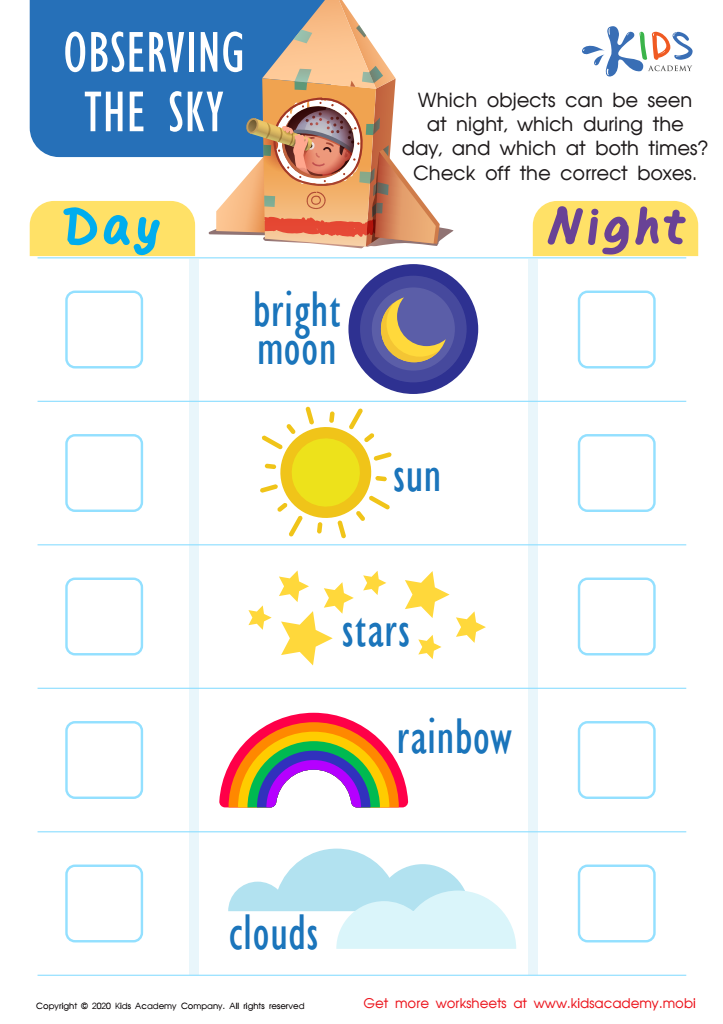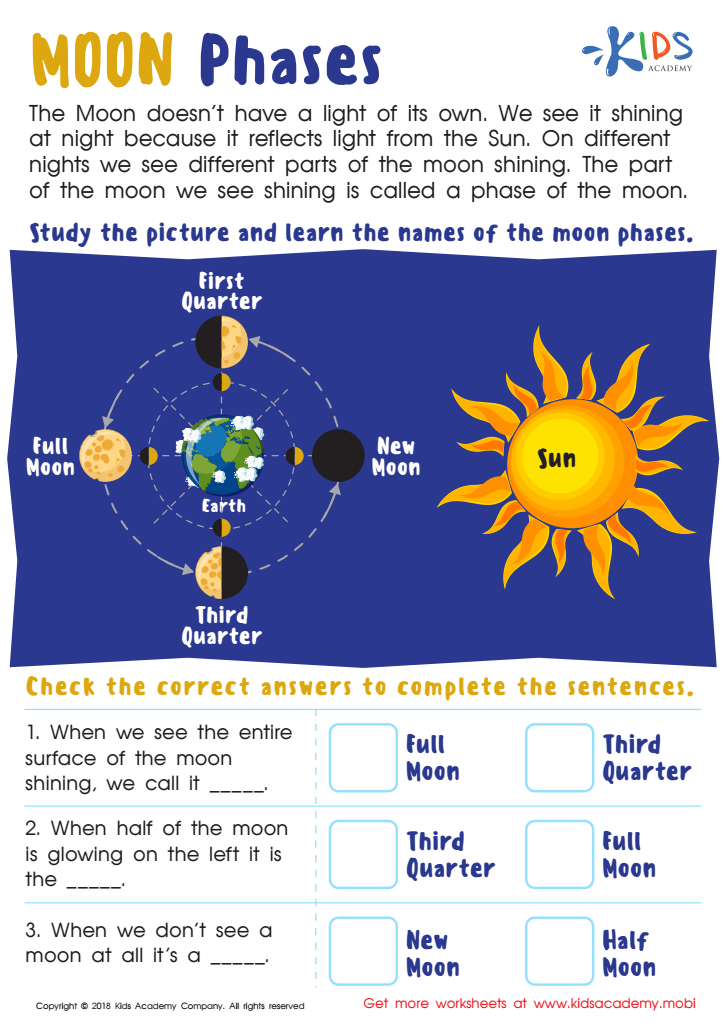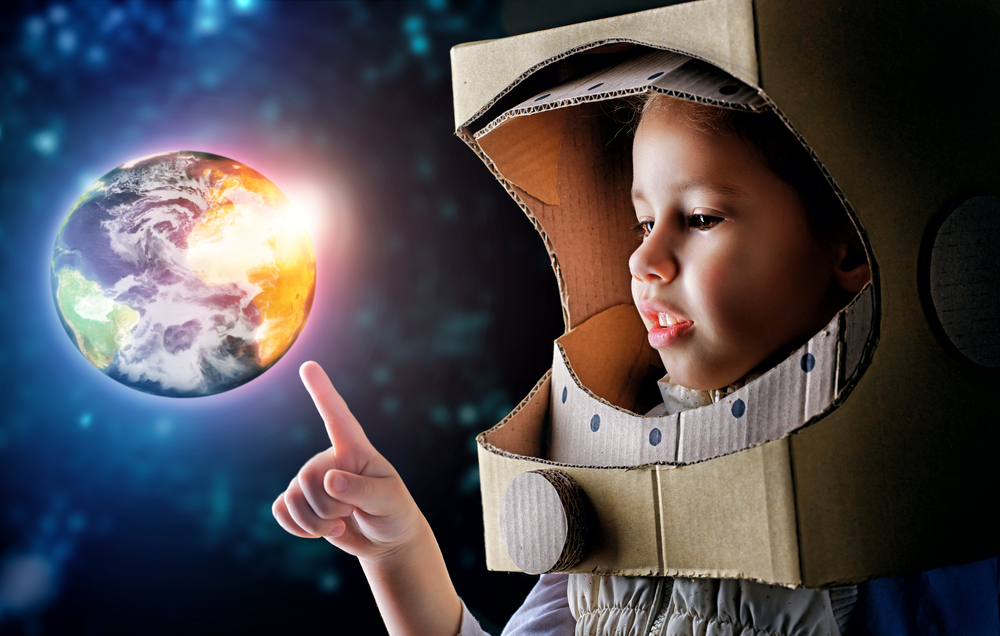Observational skills Normal Grade 1 Space Worksheets
3 filtered results
-
From - To
Enhance your Grade 1 student's observational skills with our engaging Space Worksheets! Designed specifically for young learners, these printable resources help children explore the wonders of space while developing critical thinking and observation techniques. Students will engage in exciting activities, including identifying celestial bodies, comparing sizes, and noting differences among planets. Our worksheets are crafted to make learning fun and interactive, fostering a deeper understanding of our universe. Ideal for classroom or home use, these activities encourage curiosity and a love for science. Dive into the cosmos and boost your child’s observational skills with our thoughtfully designed materials today!


Moon Journal Worksheet


Observing the Sky Worksheet


Moon Phases Worksheet
Observational skills are crucial for Grade 1 students as they lay the foundation for learning in all subjects, particularly in understanding space and the environment. During this stage of development, children's curiosity about the world around them is at its peak. By nurturing their observational skills, parents and teachers can enhance their ability to analyze, compare, and recognize patterns in various contexts.
Developing observational skills helps students engage more deeply with their surroundings. For instance, during lessons on space, children can learn to identify celestial bodies, understand the changing seasons, or explore the concept of gravity by simply observing the world around them. This hands-on approach encourages critical thinking and fosters a love for science and exploration.
Moreover, strong observational skills are linked to improved cognitive development. When children actively observe, they learn to ask questions, make predictions, and draw conclusions, essential elements of the scientific method. Additionally, these skills are transferable, benefiting literacy and numeracy as they learn to observe details in texts or numerical patterns.
Overall, fostering observational skills in young learners equips them with vital tools to succeed academically and promotes curiosity, creativity, and lifelong learning. Thus, parents and teachers play a crucial role in this development.
 Assign to My Students
Assign to My Students



















